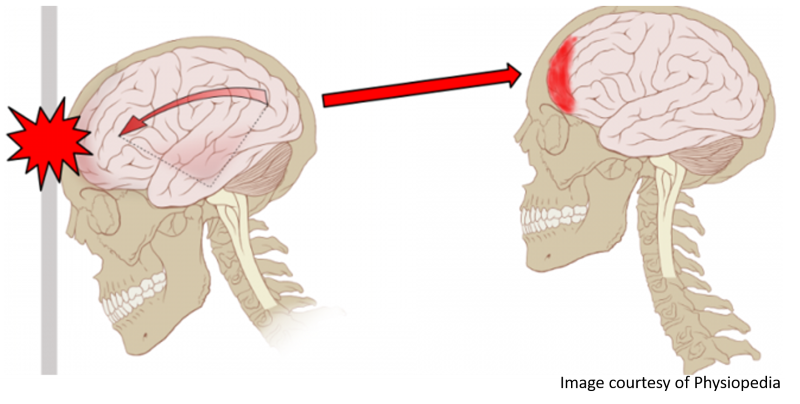
What is a Concussion?
In Canada alone, there are 200,000 concussions annually. These numbers are most likely an underestimate of the true burden of concussions. This “invisible injury” is often under reported due to lack of public education and awareness.
So What Exactly Is A Concussion?
A concussion (or mild traumatic brain injury) is a type of brain injury that causes a, often temporary, disturbance in brain function. Concussions occur as a result of impact causing the brain to be accelerated and decelerated inside the skull. The majority of patients’ concussion symptoms resolve within the first 1-2 weeks after their injury. However, approximately 15-35% of patients’ will continue to have persistent symptoms beyond this point and if not managed properly may cause significant morbidity.
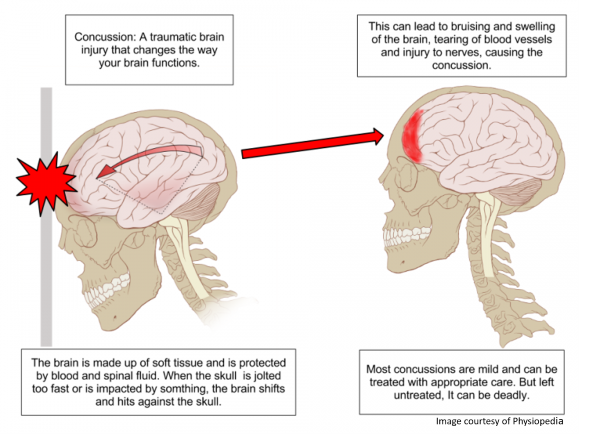
Clinical Presentation:
No two concussions will present the same. Signs and symptoms can vary significantly between patients and may be obvious such as loss of consciousness or less obvious such as sleep disturbances. It should also be noted that signs and symptoms may appear immediately after the injury or even minutes to hours afterwards.
What are the signs of a Concussion?
- Loss of consciousness
- Fencing Response – is when a person’s arms often go into an unnatural position
- Rag-doll sign – laying motionless
- Clutching the Head following a blow
- Sudden Poor Balance
- Vomiting
What are the symptoms of a Concussion?
Physical
- Headache
- Neck Pain
- Sensitivity to light/noise
- Visual problems
- Dizziness
- Balance issues
- Nausea
Cognitive
- Memory issues
- Confusion
- Feeling in a fog
- Feeling slowed down
Emotional
- Anxiety
- Nervousness
- Depression
- Sadness
- Irritability
- More emotional
Sleep
- Fatigue
- Low energy
- Sleeping more/less
- Difficulty falling asleep
The existence of even ONE of these symptoms following a direct or indirect blow to the head is enough to suspect a Concussion.
Risk factors for prolonged recovery:
- History of concussions
- Anxiety or depression
- Family or Life stress
- Age (adolescents may take longer)
- Sex (females tend to have higher risk)
- Misinformation (resting too long, returning too soon)
- Improper management
If you suspect a Concussion?
If you have sustained a direct or indirect blow to the head and present with one or more of the above signs and symptoms, there should be a high suspicion of concussion. You should immediately remove yourself from the play/work environment and not return until you are assessed and cleared by a medical doctor or healthcare practitioner with concussion management training.
5 most effective evidence-based treatments for Concussions?
Exercise Therapy
Manual Therapy and Neck Rehab
Diet/Nutritional changes
Vestibular and Visual Rehab
Educational and Reassurance
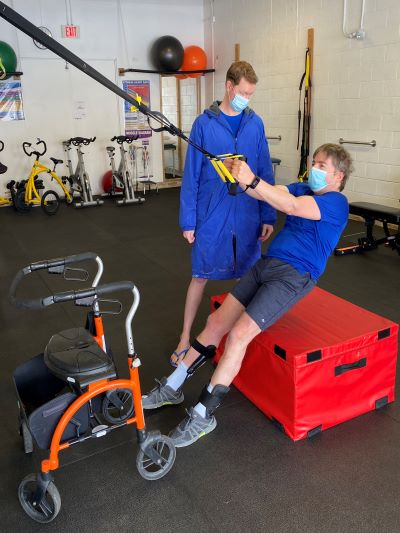
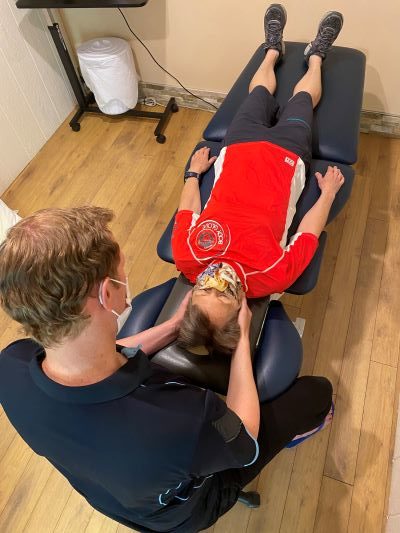

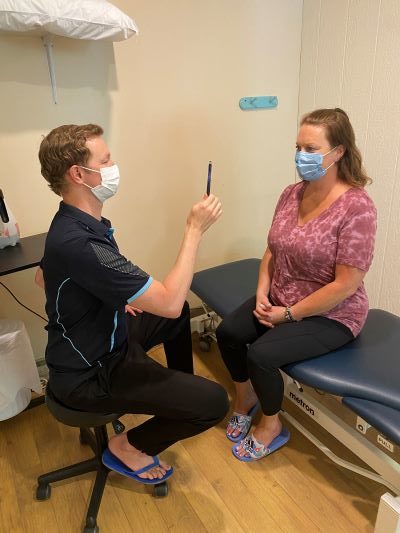
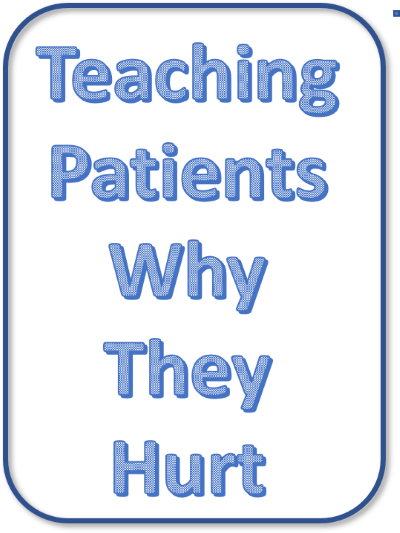
FAQ’s
Should I just rest for 2 weeks to see if my concussion symptoms resolve on their own before seeking therapy?
NO! In the past rest was considered the primary initial treatment for concussions. However, research has evolved immensely since those early days and it is now advised to avoid prolonged rest after a concussion and it is safe to begin therapy with a trained professional within the first 48 hours.
Does there have to be a loss of consciousness (LOC) in order to have a concussion?
NO! One of the most common myths around concussions is that there must be a LOC in order to sustain a concussion. This is not true. Although, LOC is one of the signs that may present during a concussion, it does not have to occur.
Will an MRI show if I have a concussion or not?
NO! Concussions cannot be seen on regular x-ray, MRI or CT scans. However, your doctor may order these tests to rule out any further damage/injury.
References:
Brain Injuries Canada website. “Statistics on Brain Injuries” https://www.braininjurycanada.ca/en/statistics-brain-injury (accessed May 9, 2021)
Complete Concussion Management website. “Concussion” https://completeconcussions.com (accessed May 9, 2021)
Physiopedia website. “Concussion”
https://physio-pedia.com/Concussion (accessed May 9, 2021)
SCSC, Evidence, 20 February 2019, 1855 (Dr. Charles Tator, Director, Canadian Concussion Centre – University Health Network).
Author
Drew Murray
Physiotherapist